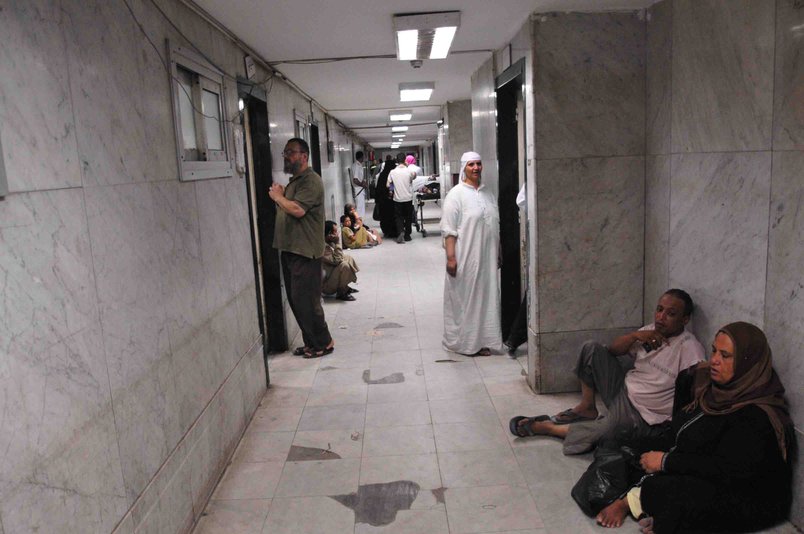A video of a woman delivering her baby on a public hospital floor on Thursday, for the second time in less than a year, comes as no surprise in a country that has only 33 hospital beds for every 10,000 citizens.
Similar incidents have frequently occurred in recent months, reflecting deterioration in the healthcare system. The lack of access to treatment and medical equipment, and the low grade infrastructure of hospitals led to the death of a doctor in Ismailia due to a meningitis infection, and to a woman who was forced to deliver her baby on a hospital floor in Al-Behaira.
In a TV interview on Thursday, Health Minister Ahmed Emad El-Din announced a string of decisions to develop the healthcare system in Egypt.
“The medical insurance law is officially finalised,” he said, referring to the recently drafted medical insurance law to cover healthcare expenses for all citizens.
It still needs minor review of its wording with the finance minister and the state council’s vice president, and finally the president to ratify the law.
“I believe there will never be a thriving healthcare system in Egypt without comprehensive and real medical insurance,” he said.
According to Emad El-Din, the new law was on top of his work agenda as he began working on the issue as soon as he was appointed on 19 September.
He described the new law as “mandatory and covering every citizen” with 4% of his salary, 1% allocated by the citizen and 3% allocated by the employer.
The new cards will be linked to citizenship and for the entire family, not for every individual. The ministry will start implementing it in a few cities as a pilot model, and then generalise it all over Egypt. The cities are selected according to the ones that have already existing database for citizens who use smart cards.
“Between 40% and 42% of Egyptians are in need for this medical insurance coverage and the state will cover their treatment expenses through this law,” Emad El-Din added.
The ministry will launch a quality control authority on hospitals to be included in this new medical insurance ecosystem.
Only the hospitals that have qualified doctors with good salaries, high-quality infrastructure, and high-quality equipment will be included in the insurance system, according to Emad El-Din.
“This control authority will be directly under the presidency, not the ministry,” he concluded.
In addition to the new law, the ministry raised the compensation for infections in the workplace from EGP 19 to EGP 250.
Meanwhile, last week, a raid on pharmacies in Cairo and Daqahleya uncovered smuggled drugs including Tramadol and Lipiodol, and many other expired medicines and medical samples that should not be kept in pharmacies.



